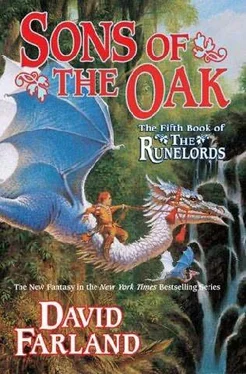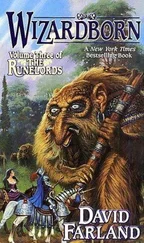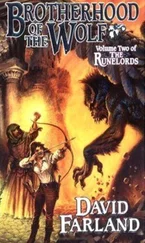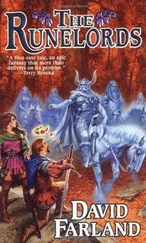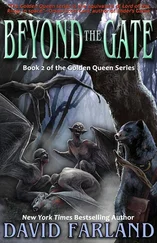David Farland - Sons of the Oak
Здесь есть возможность читать онлайн «David Farland - Sons of the Oak» весь текст электронной книги совершенно бесплатно (целиком полную версию без сокращений). В некоторых случаях можно слушать аудио, скачать через торрент в формате fb2 и присутствует краткое содержание. Жанр: Фэнтези, на английском языке. Описание произведения, (предисловие) а так же отзывы посетителей доступны на портале библиотеки ЛибКат.
- Название:Sons of the Oak
- Автор:
- Жанр:
- Год:неизвестен
- ISBN:нет данных
- Рейтинг книги:5 / 5. Голосов: 1
-
Избранное:Добавить в избранное
- Отзывы:
-
Ваша оценка:
- 100
- 1
- 2
- 3
- 4
- 5
Sons of the Oak: краткое содержание, описание и аннотация
Предлагаем к чтению аннотацию, описание, краткое содержание или предисловие (зависит от того, что написал сам автор книги «Sons of the Oak»). Если вы не нашли необходимую информацию о книге — напишите в комментариях, мы постараемся отыскать её.
Sons of the Oak — читать онлайн бесплатно полную книгу (весь текст) целиком
Ниже представлен текст книги, разбитый по страницам. Система сохранения места последней прочитанной страницы, позволяет с удобством читать онлайн бесплатно книгу «Sons of the Oak», без необходимости каждый раз заново искать на чём Вы остановились. Поставьте закладку, и сможете в любой момент перейти на страницу, на которой закончили чтение.
Интервал:
Закладка:
It was one of his best and brightest memories, and as he lay back down in the boat now, he tried to pretend that this trip was like that one.
There are turtles that live on this river, Fallion reassured himself, imagining how they would sit sunning on logs, like muddy rocks, until you got too close.
And in the springtime the frogs probably sing so loud that you couldn’t sleep if you wanted to. And I’ll bet that there are river otters here that slide down muddy trails into the water, just for fun.
Fallion was just beginning to think that they had come through safely when he heard a sound up in the trees like rolling thunder: the snarl of a strengi-saat.
8
Peace comes not from an absence of conflict, but from an absence of despair.
— Duke PaldaneIn the watchtower at Castle Coorm, Chancellor Waggit-who only an hour before had only carried the title of Hearthmaster-paced beside the far-seers, expecting a siege. By all of the signs, it appeared that he had one.
He had often come to the watchtowers at night, looking to the far-seers for news. The far-seers had many endowments of sight, hearing, and smell. Little happened near the castle that escaped their detection.
On most nights they kept their silent watch, amusing themselves and the chancellor with the antics of the townsfolk. The cobbler’s wife had several lovers, and could often be seen tiptoeing to some tryst while her husband slept off his nightly drunk, blissfully unaware that there was only a slim chance that he had fathered even one of his nine children. Other nights, the far-seers would relay the words to screaming fights that took place outside the alehouses, or just watch the stags and bears sneak into apple orchards on the hillsides to eat the fallen fruit.
But tonight, there was danger afoot. A wind picked up just after midnight, less than an hour after Prince Fallion had ordered the slaughter of Asgaroth’s troops, and it blew this way and that, signaling a storm. The air was thick and fetid, as if it had blown out the Westlands from the swamps at Fenraven.
It sat heavy in the lungs, and made breathing tiresome. Worse, the air carried clouds of gnats that seemed to want to lodge in Waggit’s throat when he breathed, and mosquitoes that acted as if his was the only blood to be found for twenty leagues.
Heavy clouds began to lumber over the horizon, blotting out the stars, and grumbling could be heard, the voice of distant lightning.
Sometimes a bolt would sizzle through the clouds, creating a burst in the heavens. By that light, the far-seers reported strengi-saats at the edge of the woods in the southern hills, dark shadows flitting between trees. Earlier in the day, Waggit had thought that there were perhaps a dozen of the beasts, but with each hour the count grew. Strengi-saats were filling the countryside, and Waggit realized that he and Sir Borenson had only stumbled upon their advance guard. There were not just a dozen of them. The far-seers reported several dozen, perhaps even hundreds.
And over the hill to the north, even Waggit’s poor eyes could see that campfires glowed, limning the hills and trees with light. An army was gathering. From time to time, the far-seers reported that troops rode in haste over a distant hill to the north, lances like a forest against the sky, or they would spot small groups of warriors scrounging around cottages, poking through barns.
Warning of the siege had come too late, and most of the livestock was still out there, waiting to fill the bellies of enemy troops.
No sooner had Asgaroth made his retreat than Waggit sent out three graak riders to nearby castles, calling for troops. He hoped that reinforcements would arrive soon.
But the heavens filled with black clouds, and the air grew heavy with the smell of rain. His messengers would not be able to fly in this storm, not with lightning bolts sizzling past their heads.
An hour before dawn, Waggit stood marveling at his own meteoric rise to power. Nine years ago he had been working as a miner and his only title, if he’d had one, might have been “village idiot.” But when the reavers attacked Carris, by virtue of his strength and stupidity Waggit found himself in the front lines, swinging his pickax for all that he was worth. The minstrels claim that he killed nine reavers that day. He doubted it. He could only remember killing a couple. But for Waggit’s valor the Earth King gave him the title of Baron, along with nine forcibles. Five of them he had used to take endowments of Wit, so that now he recalled all that he saw and heard. The other forcibles he had used to give himself strength and stamina, so that he might study long into the nights.
Thus he had raised himself to the status of Hearthmaster, a teacher in the House of Understanding.
And only moments before she left, the queen had named him Chancellor and bestowed upon him the task of caring for Castle Coorm and the lands roundabout.
It would have been a pleasant task in fairer times. Coorm was called the Queen’s Castle, for over the centuries many a queen had made it their summer resort when the air got too muggy at the Courts of Tide. It was a pretty castle, one might even say dainty, with its tall spires and pleasant views.
But now it seemed a death trap.
Waggit was determined to defend it to the best of his ability, and he had good captains under him who knew how to wage a war. But he couldn’t help but worry. His own wife and daughter, both of whom were named Far-ion, were trapped within the walls.
So it was that just before dawn a large force of soldiers came sweeping toward the castle on foot, racing down over the hill from the north. The men sprinted through the damp fields with unnatural quiet, it seemed, or perhaps it was the contrary winds that blew away the sound of their approach. There were thousands of men-archers with longbows, force soldiers with spears and axes.
Asgaroth rode before them, upon his red blood mare.
One of the castle guards winded a horn, his plaintive notes warning almost no one, for the walls were already well manned.
The signal was mostly for the benefit of the queen, to let her know that the battle had begun, if any of her folk were still within hearing range of the horns.
But the signal served another purpose, one closer to Waggit’s heart: from the graakerie, eight graaks suddenly took flight at the sound. Upon the back of each sat a young boy or girl, cowled and anonymous.
One rider was Waggit’s own daughter, seven-year-old Farion.
The graaks split off in groups. Four of them went northeast toward the Courts of Tide. Three winged northwest toward Heredon.
And one flew straight up toward the far-seer’s tower, thundering above it, the wash from its vast leather wings stirring the air.
From atop it, Waggit heard a small voice call, “Good-bye, Daddy.”
Waggit’s heart skipped a beat. Farion sounded so tiny and frightened to be riding such a great beast.
The graak let out a plaintive croak, then suddenly turned and followed the three that headed for Heredon.
Waggit smiled sadly, relieved to see that his daughter had made it through the takeoff, worried about how far she had to go.
It will be storming soon, he thought. The rain and thunder will drive the graaks to ground. But hopefully it will be many hours from now, and the great reptiles will be far away.
Waggit stood, leaning upon a staff, watching the children fly off into the night.
Let Asgaroth puzzle that one out, he thought. If it is the princes he wants, he’ll have to send men to follow the decoys.
But suddenly there arose grunting sounds from the north, the sound that graaks make when they take flight, and Waggit watched in horror as dozens of the creatures rose up from the woods.
Читать дальшеИнтервал:
Закладка:
Похожие книги на «Sons of the Oak»
Представляем Вашему вниманию похожие книги на «Sons of the Oak» списком для выбора. Мы отобрали схожую по названию и смыслу литературу в надежде предоставить читателям больше вариантов отыскать новые, интересные, ещё непрочитанные произведения.
Обсуждение, отзывы о книге «Sons of the Oak» и просто собственные мнения читателей. Оставьте ваши комментарии, напишите, что Вы думаете о произведении, его смысле или главных героях. Укажите что конкретно понравилось, а что нет, и почему Вы так считаете.
